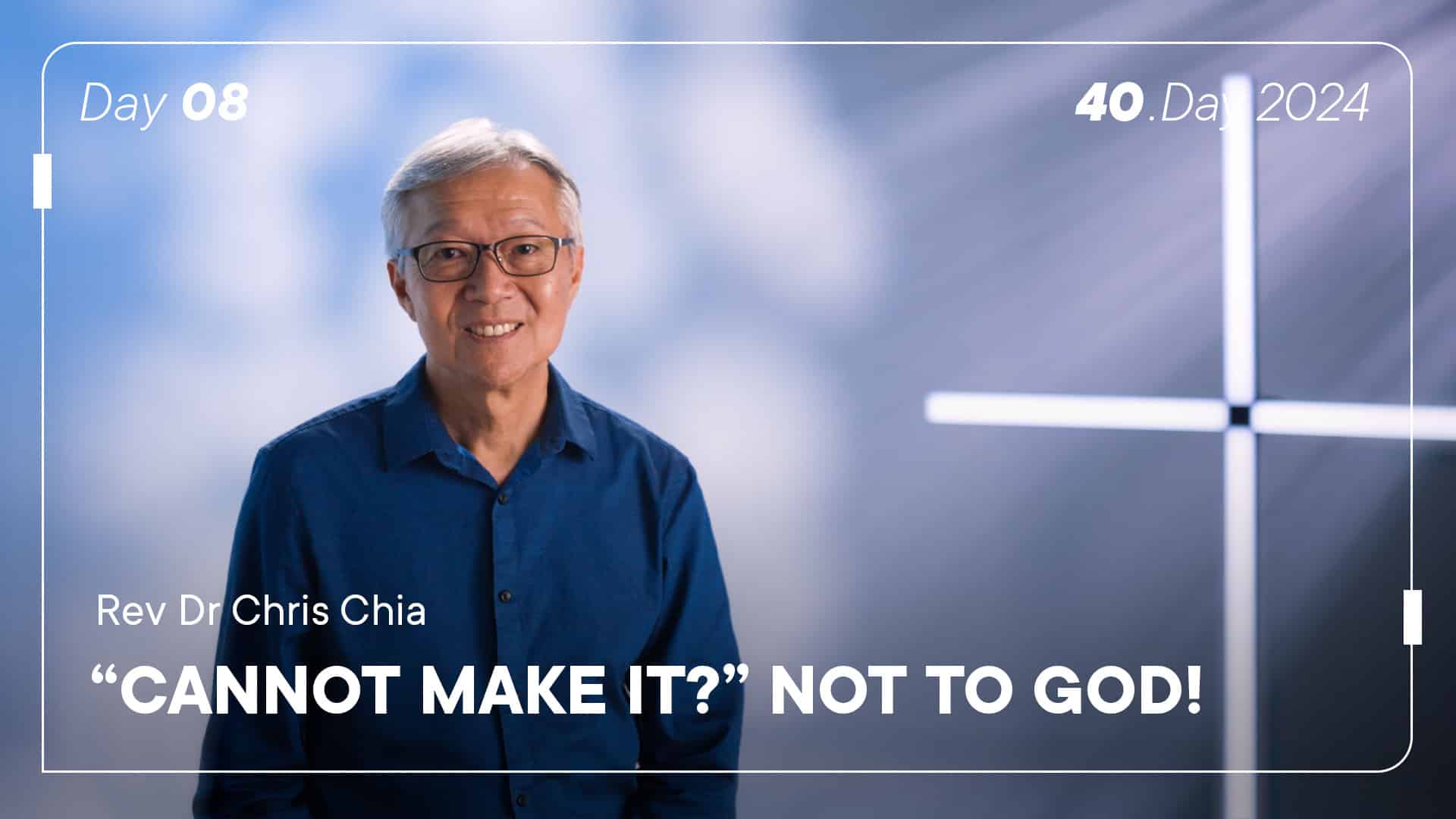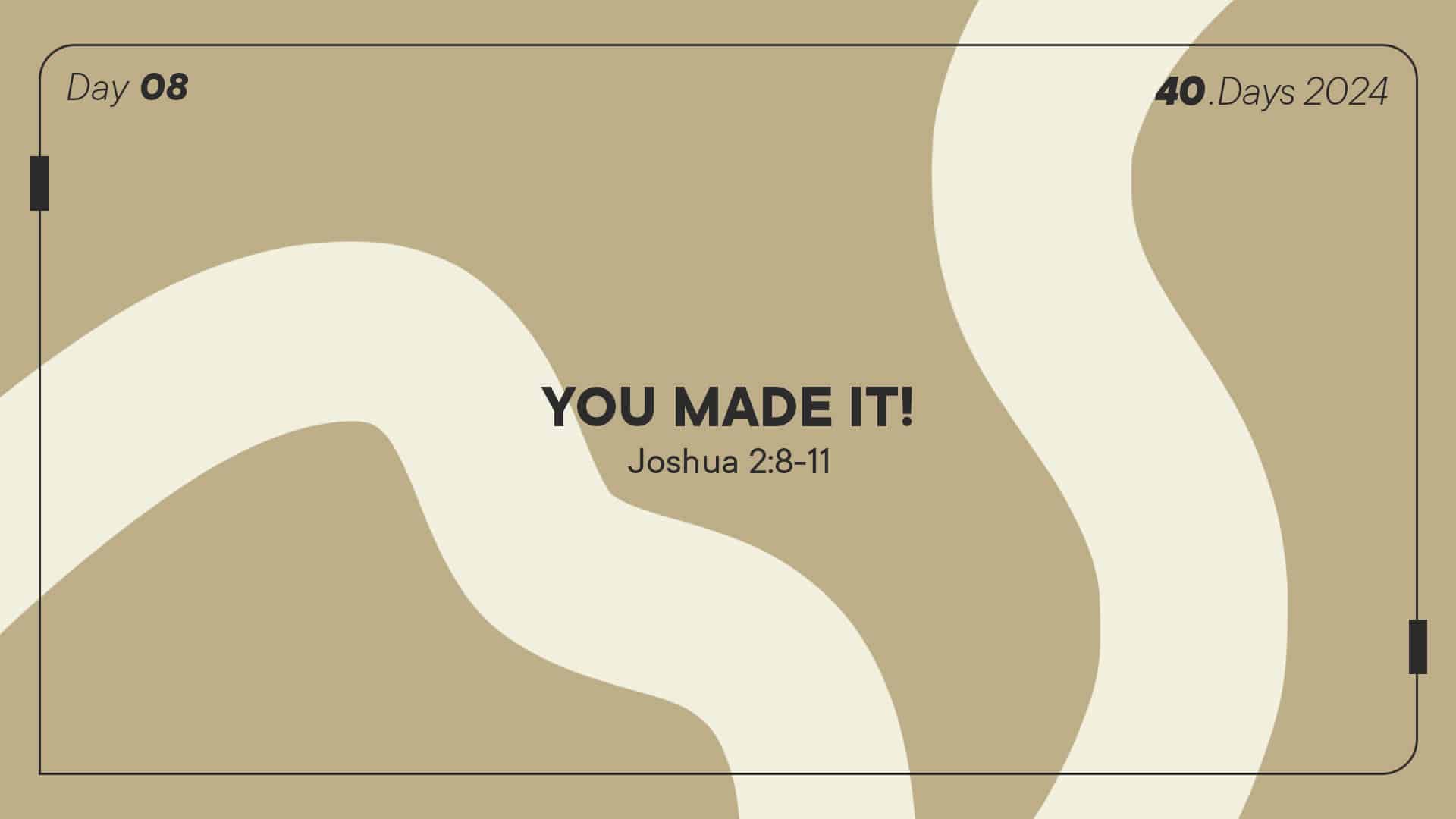“To finally have been able to come here is very special”: Keith Getty on Singapore food, family and their first concert in Asia
Interview by Evelyn Choo, text by Gracia Lee // May 27, 2022, 8:19 pm
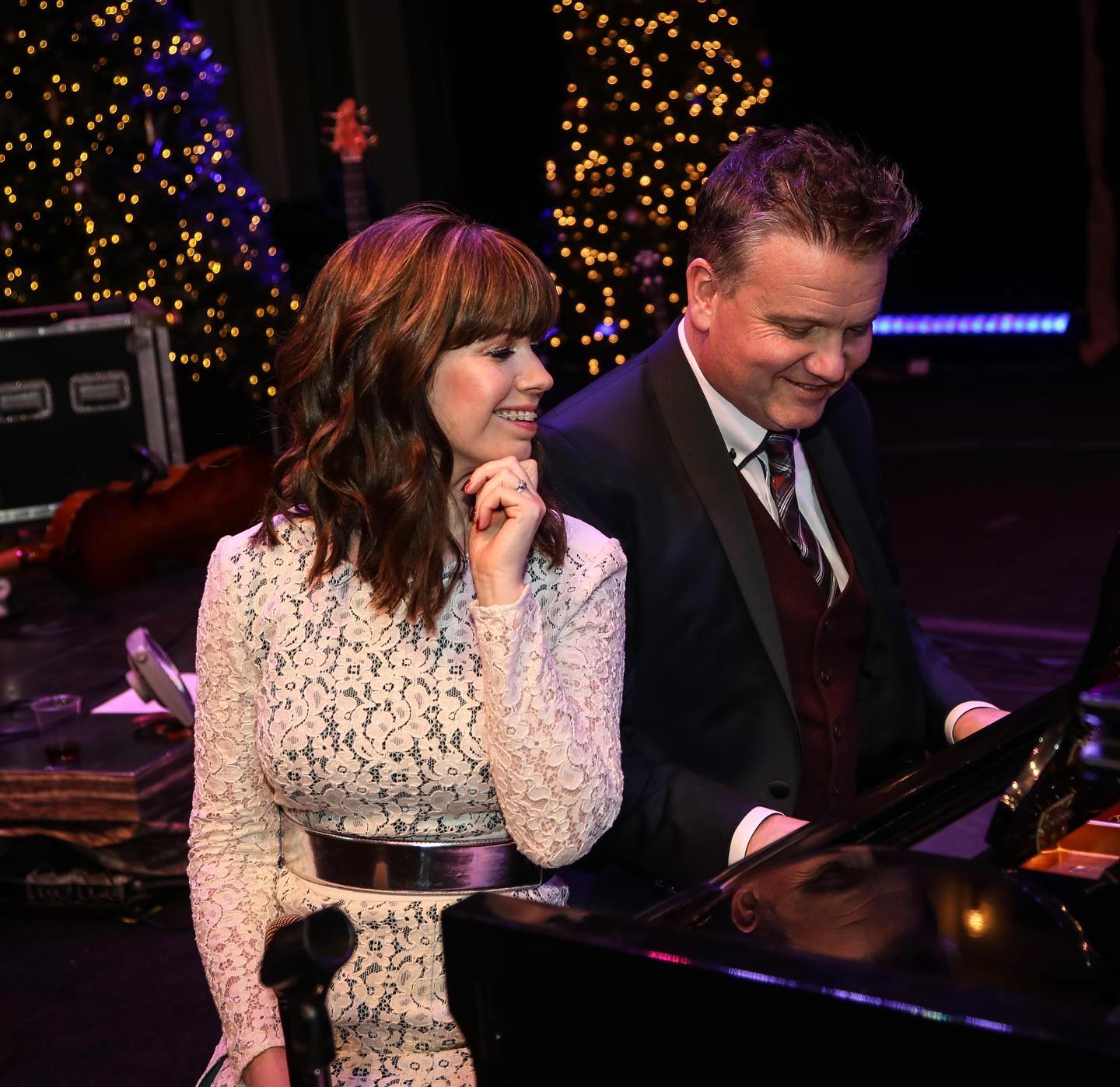
Keith and Kristyn Getty taking the stage together last Christmas. Photo from www.facebook.com/gettymusic.
Popular modern hymn-writers Keith and Kristyn Getty, best known for their contemporary worship songs In Christ Alone and Power of the Cross, are in Singapore for the first time and will be taking the stage tomorrow night (Saturday, May 28) in their first-ever concert in Asia.
Held at The Star Theatre, tomorrow night’s concert will be their third appearance this week, having done two smaller performances at host Adam Road Presbyterian Church (ARPC) on Thursday and Friday.
The Irish-born duo shuttles between Northern Ireland and Nashville with their daughters, Eliza Joy, Charlotte, Grace and Tahlia.
Ahead of their Saturday show, Salt&Light sat down with Keith Getty and ARPC’s Senior Pastor, Christopher Chia, who invited the Gettys to perform here, for a chat on Singapore food, hymn writing and singing as a family.
(Editor’s Note: The interview has been edited for clarity.)
Keith, welcome to Singapore! What are your impressions of our country so far?
KG: It’s a privilege to be here, thank you!
You hear everything (about a place) but until you actually are there, it’s a bit like hearing about someone and then meeting them, or even understanding something and then seeing it, do you know what I mean?
Once you get here, you feel the energy and you feel the excitement, the curious cross of cultures that Singapore uniquely is in the world today. It’s just a thrill to be here.
This is probably the most important question: What local food have you tried!
KG: Oh my goodness! I mean, the short answer is that everything has been enjoyable.
The Newton (hawker centre) experience last night was great, because that’s just not an experience that we have in the west, that at 11 o’clock at night when you’ve finished your day, you all head to the market and sit at the table.
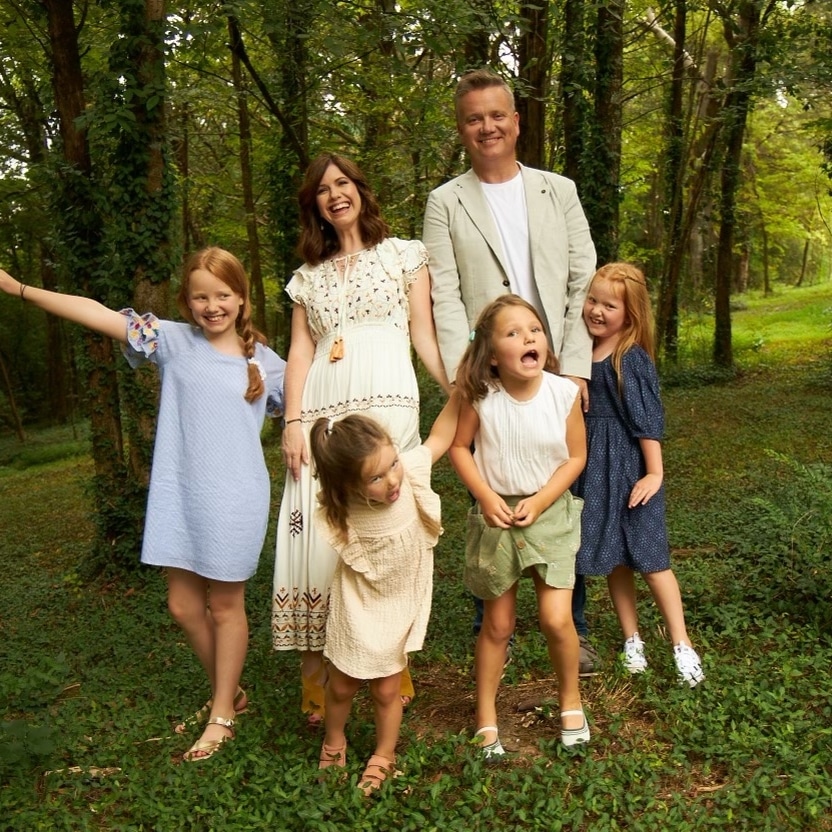
Keith and Kristyn with their children, Eliza Joy, Charlotte, Grace and Tahlia. Photo from the Gettys’ Facebook page.
That was brilliant and, honestly, just an unusual fusion of all the different foods that represent the cultural interplay in this country.
The first thing that I went for was the satay. But everything has been good. The crabs are great. I’ve been a huge fan of Asian food, so that’s been pretty incredible.
Pastor Chris, why did you decide to invite the Gettys to Singapore?
CC: I’ve been praying for the Gettys to come for a long time – five, eight years. When I hear a good thing, I wish I could bring my people to hear them, or bring them to my people, my church and beyond, to bless Singapore.
”Theirs is a kind of music that can reach the older ones in their 50s and 60s, as well as the teenagers and those in their 20s.”
With their songs, the Gettys are meeting a need here, and the need is a wonderful need.
Those who are older were brought up with hymns. It’s not so much just tradition or heritage. But hymns, known or unknown to us, are very rich in theology, very Gospel-centred, Christ-centred.
A lot of songs today in the past 20, 30 years, they are still Christian songs but they are very “me-centred”. Some people will put it: It’s almost like ‘Jesus is my boyfriend’ kind of songs. He meets my needs.
There is a place for that, but we should always keep our focus on the fact that God is God and that God deserves our first worship through Christ. That’s the important thing, the theology of that.
The Gettys modernise hymns, which attracts the younger generation. So theirs is a kind of music that can reach the older ones in their 50s and 60s, as well as the teenagers and those in their 20s. We need this here in Singapore.
Maybe after being inspired and instructed by people like the Gettys, it will slowly produce a small crowd of our own Singaporean or Asian hymn writers who will write more relevantly to our countries.
People from various churches and other denominations are coming and the concert’s almost full. We are really encouraged by that. And we really pray that the afterglow of this will be wonderful, because they’re going to promote singing in families, which is so missing.
Keith, how significant is it to be leading worship here for the first time?
KG: It’s quite profound on multiple levels, more than I possibly have time to say.
“Our culture doesn’t want to think of death or pain … But actually we wanted people to go into that. We wanted them to understand why Christ died.”
In the year 2000, we wrote a collection of hymn melodies and, in a sense, they were our protest songs. It wasn’t that we didn’t love worship songs – I’m a child of worship songs like most of us are – but we felt we needed more than that to grow healthy believers for the next generation.
I was introduced to Stuart Townend and the first hymn that was released was In Christ Alone.
From that process, we started to say: Imagine a world in 2050 where every church had a diet of hymns, whether you’re an extremely charismatic church who has 20 hymns that you sing interspersed with worship songs, whether it’s more of a local-based church where you sing your own local music but you have 20 great hymns, or whether you’re a Presbyterian church and you want to have 150 traditional hymns and 100 modern hymns. Let’s give a voice to that.
So our 2050 vision is to try and write hymns, publish hymns and stimulate a new generation of hymn writers in every language.
“Our 2050 vision is to try and write hymns, publish hymns and stimulate a new generation of hymn writers in every language.”
In one sense, that we could do in the English-speaking world – the Western world, certainly – but we also wanted to see how we could serve either by writing hymns or stimulating this idea in other cultures that they could write their own hymns.
The majority of the world is Asian, so to finally have been able to come here is very special.
Kris and I were hoping to come in 2010 and we got pregnant with Eliza, our first child. And so we ended up spending the decade raising four daughters. Then with Covid for two years we kept getting delayed.
We had our first meeting about coming to Asia 15 years ago, and 15 years on we are here. So this is special, and we hope it will be part of the rhythm of every year from now on.
Would you tell us more about your thought process behind your hymn writing?
KG: Hymn writing is an intentional thing. One is trying to frame the truths of God, the truths of humanity and the truths of the Gospel into a song.
So, for example, Stuart Townend and I wrote a song years ago called The Power of the Cross. We wrote I think it was 17 or 19 verses. It took over a year to finish and we stopped speaking for three months in the middle of it because it was so intense.
With The Power of the Cross, we were very much intentionally trying to force people’s minds for four-and-a-half minutes to go heavier than they would usually go.
“The advice I would give is: You have to be passionate about theology but you also have to be passionate about poetry.”
Our culture doesn’t want to think of death. It doesn’t want to focus on heavy things. It doesn’t want to focus on pain. Most of life, from how you are served in a restaurant during retail, to how television is brought to you, to how hospital services work, to even how churches are now built, is to try to eliminate the idea of death and suffering.
But actually we wanted people to go into that. We wanted them to understand why Christ died. We wanted them to understand the forgiveness of sin, because at the heart of the Christian Gospel is the forgiveness of sin.
It’s not chasing something that works for you in life, or eradicates your problems or makes your marriage or your business better. It’s actually repenting of sins. And so we wanted to bring that to the heart of things.
So the hymn writing process is a very intentional process. It’s about truth and it’s also about melodies that every generation can sing and will continue to sing.
So many of my friends – these are my good friends who write worship songs – their focus is to try and write a song that captures the music of the moment, because they want to be relevant. I’m not saying it’s right or wrong. I’m just saying that it’s different. It’s a different priority.
What advice would you give aspiring hymn writers in Singapore and in Asia?
KG: I think it’s about being serious about really plying deeper into the Scriptures, but it’s also about finding melodies and poetry that moves the soul.
When I started The Hymn Writers Collective, which is our training programme, we joked that it was going to be full of people who love theology and are terrible at music, because that’s the reputation that conservative churches have around the world.
It’s like, the preaching is really good, the singing is really boring. And so that’s what we were expecting.

“We had our first meeting about coming to Asia 15 years ago, and 15 years on we are here. So this is special, and we hope it will be part of the rhythm of every year from now on,” modern hymn writer Keith Getty told Salt&Light. Photo by Chia Meng Hong.
But actually, it was different. It was great theology. There was a range of musical skills but everybody wanted to improve. Everybody realised that we have to get better at our music.
But nobody was caring about poetry. That was one of the things that I’m really concerned about being lost.
The hymn tradition has one of the finest poets. King George IV’s poet laureate translated O Sacred Head, Sore Wounded and Jesu, Joy of Man’s Desiring, and all these famous hymns – including Praise to the Lord, The Almighty – from German to English, and he put them beautifully to poetry. And so much of the hymns from George Herbet to Isaac Watts are extraordinary poems.
So the advice I would give is: You have to be passionate about theology but you also have to be passionate about poetry.
And then, thirdly, you have to understand that until you have a melody that people are dying to sing, your song ain’t leaving the garage, as they say in America.
We hear you sing hymns to your daughters at bedtime. When it comes to young children, do you think worship songs help convey biblical concepts?
KG: If we go right back to the shema in the Old Testament, it says write these truths on the hearts of your children. What is that?
“When we teach our kids to sing the great hymns of the faith, they are understanding a reverence and that Jesus is their only hope.”
The Jewish tradition of writing letters didn’t mean just writing something or sending a text. It was an engraving process that took a long time. So how do we write the truth of the Gospel on our children’s hearts?
When we teach our kids to sing the great hymns of the faith, they are actually learning a theology of God. They are learning how to address God.
They are understanding that God is our Father. They are understanding a reverence. They are understanding that Jesus is their only hope. And they’re understanding that they are powerless without His Spirit.
They are understanding the Gospel story, that they are made beautiful in the image of God and for the joy of human life. They are also realising that they are sinners in need of a Saviour. They are sinners in need of repentance. So what we’re doing is that we’re teaching the faith.
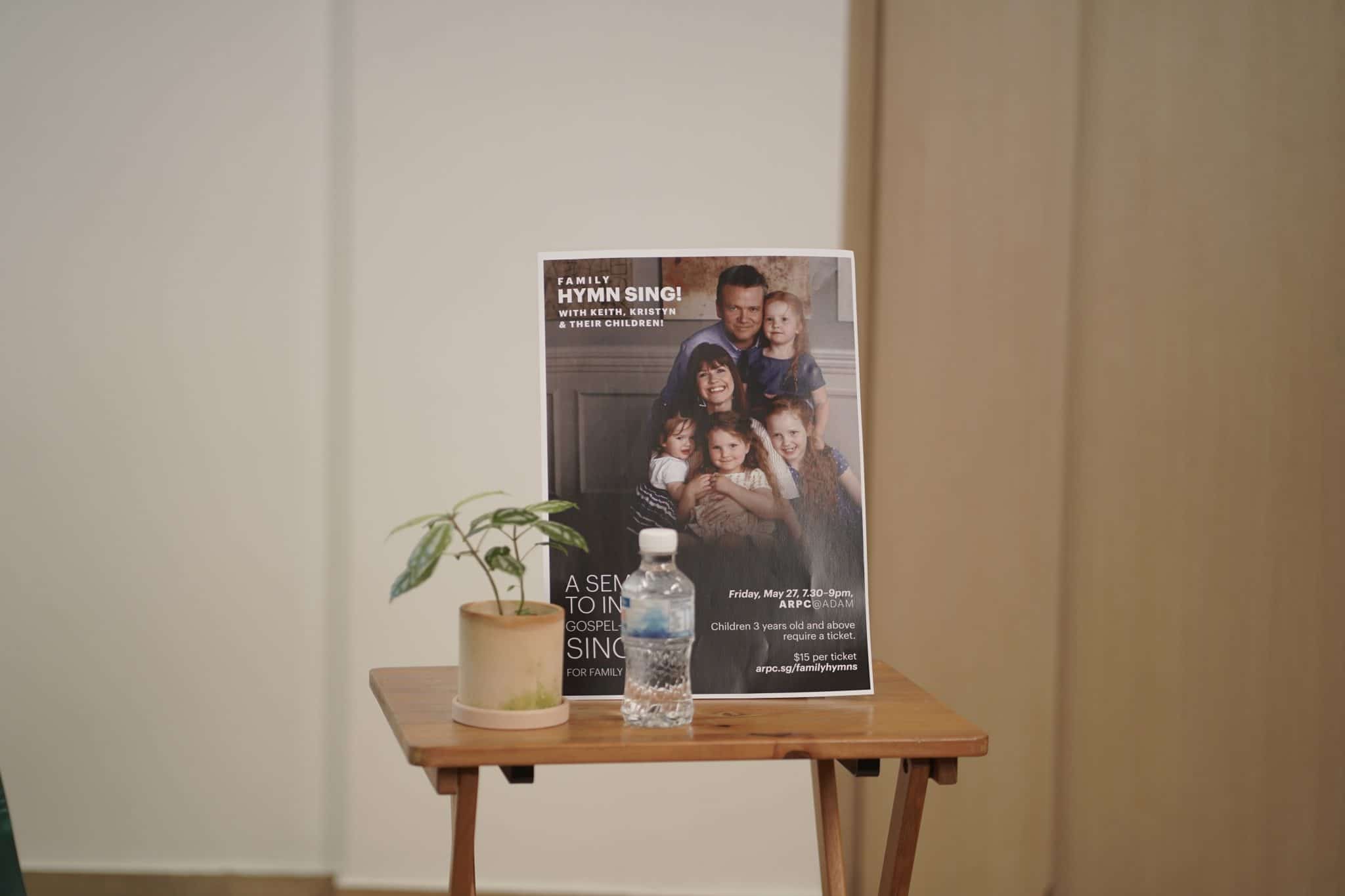
On Friday night, the Gettys ran a seminar to inspire Gospel-centred singing for family devotions. Photo by Chia Ming Feng.
But unlike a sermon, once they spend a month in that hymn, they have it for the rest of their lives.
So I know that if my girls someday walk away from the faith, they will still have those truths in their hearts, and hopefully they will look at it and go: Those were beautiful melodies. Those were beautiful moments that were told to me by a dad who loved me and a mum who loved me.
What would you say to encourage the body of Christ in Singapore?
KG: Having been around Singapore these last four days, I am amazed at the capacity of people, the focus, the ability, the resourcefulness, the vision that they go after and the speed at which they go for it. It’s just energetic and inspiring.
“Make sure your faith is always growing faster and deeper than your music.”
But Professor John Lennox from Oxford – he’s Kristyn’s uncle and he introduced Kristyn and I – advised me as an eighteen-year-old: “You need to be the best musician you can be, but make sure your faith is always growing faster and deeper than your music.”
So that meant being more concerned with my prayer life, with studying the Bible, with being around Christians that were life-giving in the same way as we in our businesses want to be around people who are inspiring.
And it’s hard because our faith is not scientifically measurable, but I think it’s the question that all of us need to be asking each day.
How are you feeling about the concert on Saturday?
KG: We are so excited about the concert on Saturday night at The Star Theatre! We’ve brought our whole band over who are going to be doing some incredible instrumentals and dance.
We’ve got Kristyn singing a collection of songs and of course sharing some of the great hymns of the faith with a full house. So we hope you can join us and join your voices in what will be a memorable night and our first-ever concert in Asia.
(Tickets are almost sold out and can be found at a 25% discount here.)

A promotional poster for the Sing! concert on Saturday (May 28) night.
CC: More than selling tickets, we want to promote a Christ-centredness of songs. And then on Sunday (when we have Sunday Service With The Gettys at ARPC@Adam), to show how it works in service.
“Silo worship, solo worship, solitary worship has its place but … we need to capture the beauty of worshipping together.”
We hope the workshops can provide the knowledge and skills so that people don’t think only Gettys can do this. I can do this as a single person. I can praise the Lord. I can gather people to praise the Lord.
I think through two years of the pandemic, silo worship, solo worship, solitary worship has its place but it’s becoming a little bit debilitating and a little bit too comfortable.
We need to capture the beauty of worshipping together, like the vision in Revelations 7:9-10, which says:
After this I looked, and behold, a great multitude that no one could number, from every nation, from all tribes and peoples and languages, standing before the throne and before the Lamb, clothed in white robes, with palm branches in their hands, and crying out with a loud voice,“Salvation belongs to our God who sits on the throne, and to the Lamb!”
RELATED STORIES:
“Playing the violin for me is like praying”: One-handed violinist Adrian Anantawan
“If you heal me, Hallelujah. If you don’t heal me, also Hallelujah”
#TheBlessingSg: 772 leaders from 177 churches sing Aaronic Blessing over Singapore
We are an independent, non-profit organisation that relies on the generosity of our readers, such as yourself, to continue serving the kingdom. Every dollar donated goes directly back into our editorial coverage.
Would you consider partnering with us in our kingdom work by supporting us financially, either as a one-off donation, or a recurring pledge?
Support Salt&Light

